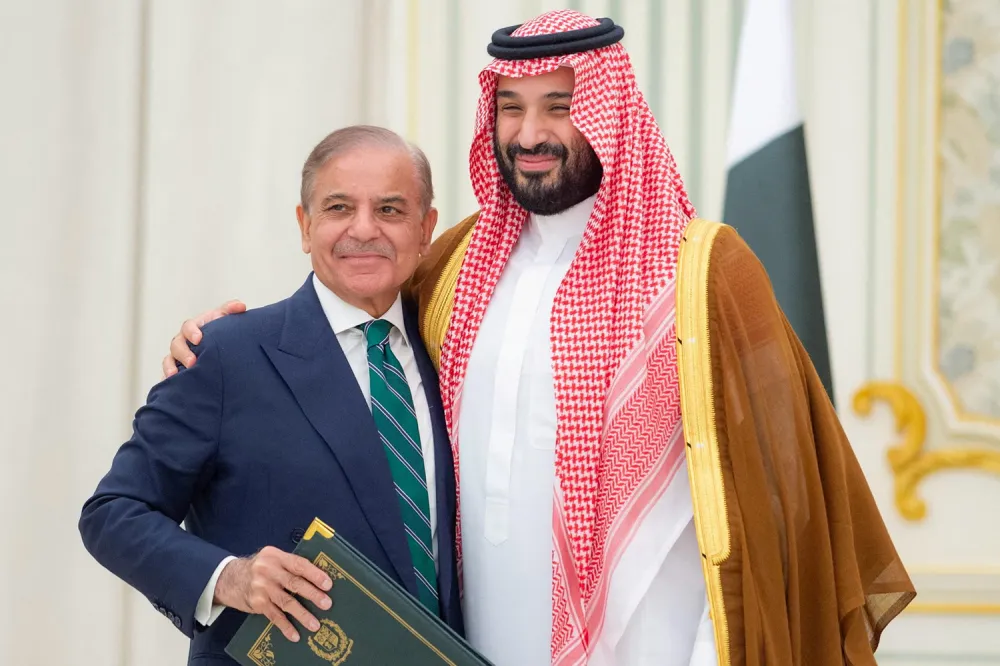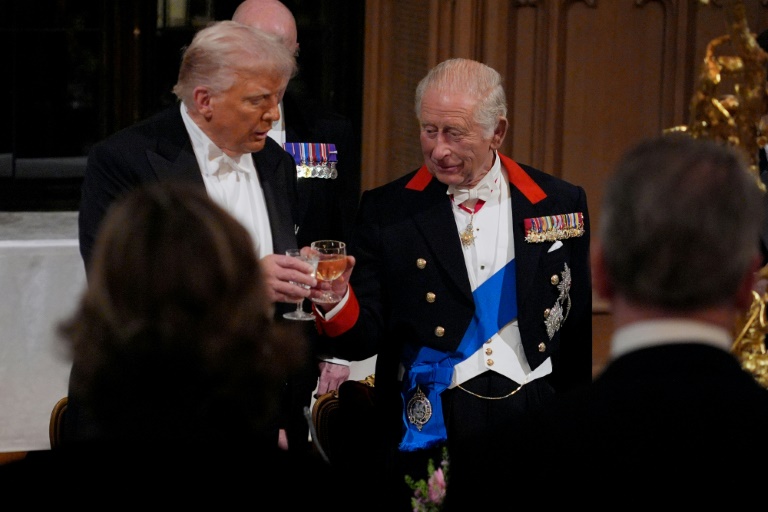
Pakistan and Saudi Arabia signed a defense pact last week that provides mutual security guarantees. The agreement is likely to have ramifications for South Asia, as it comes as a particularly fraught moment in the region. It follows the short but intense India-Pakistan conflict in May, after a terrorist attack in Indian-administered Kashmir, which New Delhi says was sponsored by Islamabad.
In the wake of the May military skirmish, Indian officials were piqued when U.S. President Donald Trump hosted Pakistan Army chief Asim Munir at the White House. India also took umbrage over Trump’s claim that he played a pivotal role in defusing the conflict and bringing about a cease-fire. India-Pakistan relations are now at their lowest ebb in decades, and the new pact is likely to cause further distress in New Delhi.
A defense agreement between Pakistan and Saudi Arabia should not be seen as surprising, given their historical ties. The two countries have a long-shared ideological affinity; both have significant populations of staunchly religious Sunni Muslims. They forged a close if informal strategic partnership beginning in the late 1970s, during the regime of Pakistani military dictator Zia-ul-Haq.
This strategic relationship crystallized over the years. Within South Asia, Pakistani and Saudi interests neatly dovetailed; they both aimed to raise the costs to the Soviet Union of its invasion and occupation of Afghanistan. The Saudis felt the need to stand up for a fellow Muslim state, while Pakistan perceived the Soviet presence in Afghanistan as a security threat. In turn, the United States under President Ronald Reagan was pleased with Saudi Arabia’s willingness to provide financial assistance to Pakistan in support of the war effort against the Soviets.
The Pakistani-Saudi relationship continued—albeit with some ebbs and flows—long after Zia’s death in 1988. Pakistan’s endemic economic woes ensured that it kept turning to Saudi Arabia for financial assistance, a lifeline that continues to provide vital support to its ailing economy today. This has given Riyadh considerable influence in Pakistan’s politics and allowed it to propagate its preferred version of Islam in the country. The two states also found common cause in the Organisation of Islamic Cooperation.
Thus, the forging of the new defense pact must be seen as the logical culmination of a cordial relationship based on shared beliefs and mutual convenience. So, what explains the seemingly abrupt decision to strike a deal now?
Analysts and journalists have speculated that though bilateral discussions were underway for years, the timing of the agreement stems from recent developments in the Middle East—specifically, the Israeli airstrike targeting Hamas leadership in Doha, Qatar, on Sept. 9. Both Pakistan and Saudi Arabia are at least notionally supporters of the Palestinian cause; this violation of Qatar’s sovereignty rankled the political leadership in Islamabad and Riyadh.
The pact means that Pakistan, as a nuclear-armed state with ballistic missiles in its arsenal, can now extend its nuclear umbrella to Saudi Arabia. Such a possibility should not be dismissed as a fantasy. During the 1980s, Saudi Arabia provided economic assistance to Pakistan’s nascent nuclear weapons program in part because of Iran’s quest for nuclear weapons. Today, a formal defense agreement with a nuclear state may grant Riyadh a modicum of reassurance against an intransigent Tehran.
The Pakistan-Saudi Arabia defense pact also has manifold ramifications for peace and stability in South Asia. China—Pakistan’s principal benefactor and staunch ally—will try to ensure that this new security nexus does not diminish its influence in Pakistan. To that end, China is likely to ramp up its military supplies to Pakistan and to sustain its infrastructure investments in the country. (It’s worth noting that Pakistan relied on Chinese-made weapons during the May conflict with India.)
Both the pact itself and Beijing’s likely reactions will lead to acute scrutiny from officials in New Delhi. The reasons for such vigilance in India are straightforward. Pakistan has a long-standing relationship with China, has found new warmth with the United States under Trump, and now has struck a defense agreement with Saudi Arabia. Islamabad has two allies with deep pockets and suddenly one with which it enjoys a formal security accord.
This web of partnerships is likely to have novel consequences for Pakistan’s security calculus. Under Munir, Islamabad has already demonstrated greater willingness to engage in saber-rattling with New Delhi. After a visit to U.S. Central Command in Florida in August, the army chief delivered a particularly truculent speech to members of the Pakistani diaspora, invoking the role of Pakistan’s nuclear arsenal in any future conflict with India.
In April, shortly before the attack that triggered the May conflict, Munir gave another speech in which he explicitly alluded to the “two-nation theory,” an idea that the founder of Pakistan, Mohammed Ali Jinnah, put forward in the early 1940s. The proposition holds that Hindus and Muslims constitute two distinct, primordial nations and are therefore destined to remain implacably at odds. Understandably, Munir’s speech raised the hackles of many Indians.
The defense pact with Saudi Arabia may make Munir even more risk-tolerant. Given the security guarantee embedded in the agreement, Indian Prime Minister Narendra Modi—who has exhibited few qualms in retaliating militarily against what he considers to be Pakistani-sponsored attacks on Indian soil—may hesitate to quickly resort to force out of fears of horizontal escalation. (Nevertheless, domestic political pressure in India to respond to Pakistani provocations may shape Modi’s calculus.)
These emerging circumstances may undermine the so-called ragged stability that has come to characterize the India-Pakistan relationship since both countries’ overt acquisition of nuclear weapons in 1998. Despite a limited war under the shadow of nuclear weapons a year later and subsequent crises, the two sides have not plunged into a full-blown conflict.



